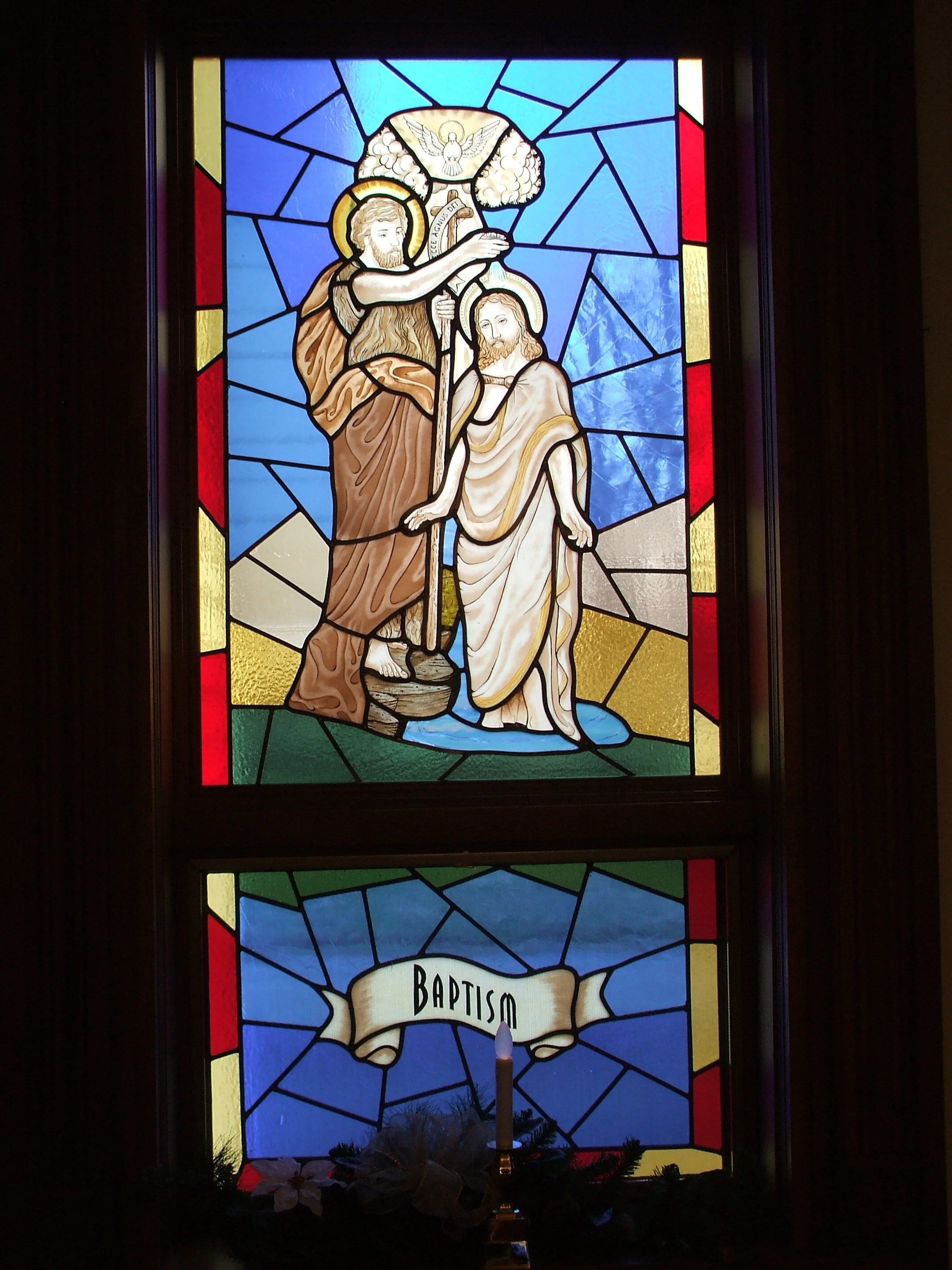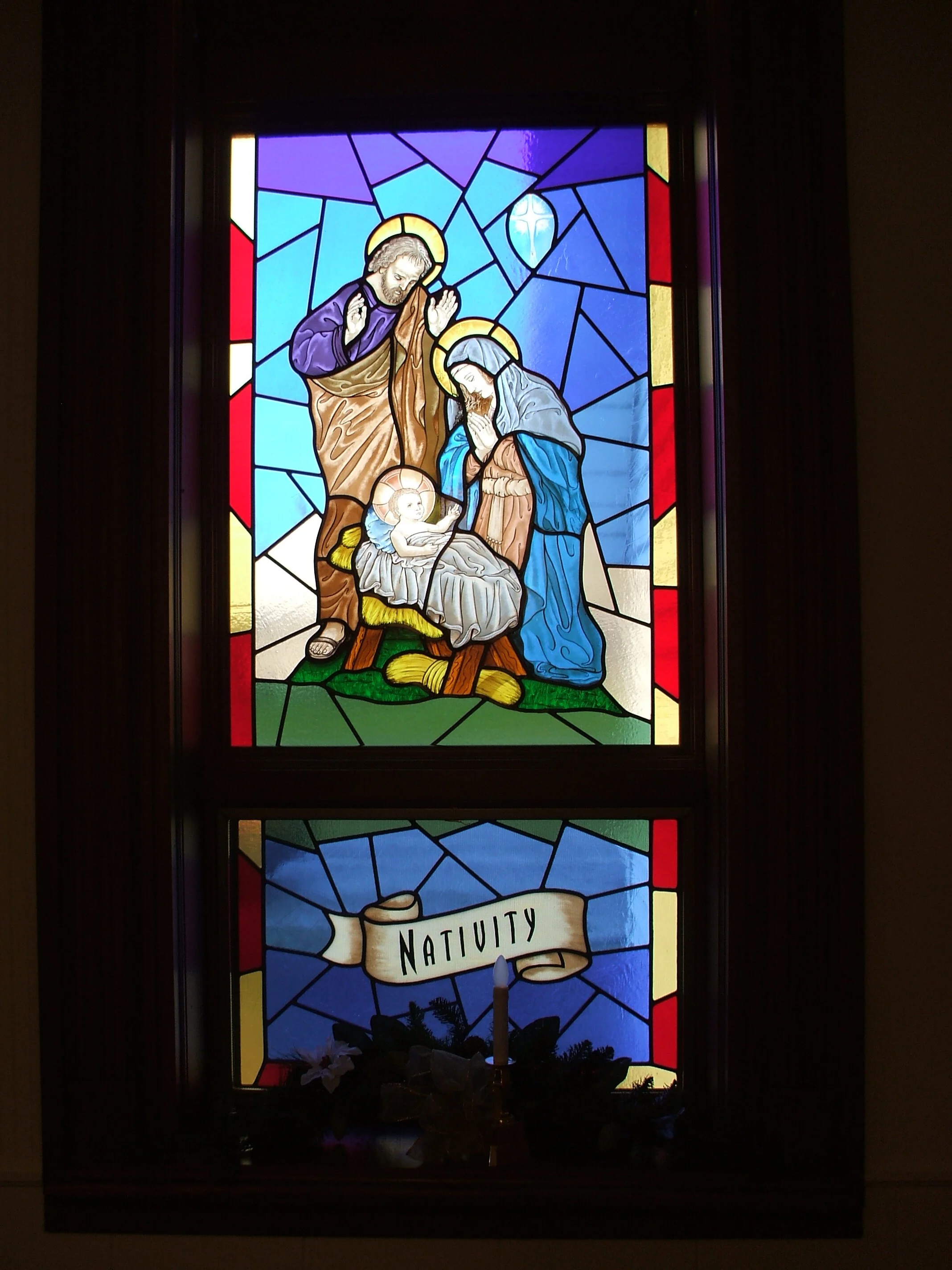Sermon for Judica Sunday, 2021
John 8:46-59 • Rev. William Gleason
“Vindicate me, O God, and defend my cause against an ungodly people.” That’s a bold prayer for a sinner. We sang those words right after confessing all of our sins with which we have offended God, justly deserving only condemnation. How can we come before the Righteous Judge and ask Him to vindicate, to defend poor, miserable sinners? We know what His just decree should be. Guilty! How can sinners make such a demand?
But what if you were not a sinner? What if you had no sin or guilt to confess? And what if self-righteous men hated you for saying it and would kill you to shut you up? Wouldn’t you then be justified in asking God to vindicate you before the godless world? Of course you would. That’s why David’s words apply first and foremost to Jesus, the sinless Servant of God who stood innocently before an ungodly nation.
That is exactly what Jesus was saying to the Jews when He said, “Which of you convicts me of sin? If I tell the truth, why do you not believe Me?” And those are the questions that He puts before the whole world. “Which of you convicts Jesus of sin? If He tells the truth, why do you not believe Him?” How shall we answer that?
In an odd way, Jesus asks us to judge Him and His words. That’s a shrewd way to confront a sinner. After all, the sinner believes he’s the best judge of everything. He’s sure that he’s a decent person and has a good heart; and although he might admit he’s not perfect, still he is sincere, which justifies everything he does. Jesus speaks to this prideful delusion and asks, “Well, then, what do you say about Me and My words?”
This is basically what the Lord was asking Abraham when He told the old patriarch to sacrifice his son, Isaac. Remember, God had promised Abraham that He would give him a son through his aged wife Sarah. And through that son, and his descendants, God would establish the covenant of blessing He made with Abraham. But then, after the Lord gave Abraham that little bundle of joy, He told him to sacrifice that same beloved son on Mt. Moriah. As if to say, “So, Abraham, do you believe My words? Then go sacrifice this promised son and show Me that you trust My word.” And, of course, Abraham did just that, and he was vindicated by his faith.
That’s where the Pharisees differed from their ancestral father. Abraham believed God in the face of what appeared impossible: he believed that God would keep His word, even through the death of a promised son, for God’s word defies even death and the grave. The Pharisees believed neither Abraham nor Abraham’s God, both of which they claimed as their own.
They did not believe because they clung to the delusion that they could judge the truth even though they were quite blind to it. Paul wrote of this in II Cor. 4, “…the god of this world has blinded the minds of the unbelievers, to keep them from seeing the light of the gospel of the glory of Christ, who is the image of God.” Jesus spoke of the same false god when He told the Pharisees their father was Satan. They did not trust in God, but in themselves; they did not trust God’s word, but in the words of men and devils. The Pharisees needed to give up on their own reason and strength if they wanted to be true sons of Abraham and children of God. They needed to confess their blindness and unbelief.
Jesus loved the Pharisees enough to convince them of this truth. And He knew that He was up against some tough nuts to crack. In their own judgment, they were learned and respectable men. They were convinced of their religion, based upon the long-established traditions of the rabbis. That’s why Jesus spoke so bluntly to them. He told them He is the “light of the world,” the Son of the Father and the glory of the Father, “the Beginning,” the source of truth and life. He wanted the full force of His light and truth of His word to shine on them so that there would be no mistake about who He is…right down to the His final words to them, “Truly, truly, I say to you, before Abraham was, I am.”
The force of Jesus’ words is unmistakable. “I AM!” That’s the name of the living God, the name God revealed to Moses. That’s the God in whom Abraham trusted; the One he worshiped. And there Jesus stood, saying, “Here I am, in the flesh!” Are these the words of a lunatic? A liar? A sinner? So Jesus asked, “Which of you convicts me of sin? If I tell the truth, why do you not believe Me?”
Jesus clearly points out that they did not believe in Him because they were not of God. John explained this at the beginning of his Gospel when he wrote, “And this is the judgment: the light has come into the world, and people loved the darkness rather than the light because their works were evil.” When the Pharisees heard His words and saw this light, their love of the darkness and their faith in Satan’s lies took over. They showed their evil works when they picked up stones to silence the truth, to extinguish the light that exposed their unbelief.
That same Truth would echo in our ears and that same Light would shine in our hearts. Christ’s desire for us, as it was for the Pharisees, is that hearing His word and keeping it by faith we may never taste death. Again, John made this clear when he wrote, “For God so loved the world, that he gave his only Son, that whoever believes in him should not perish but have eternal life. For God did not send his Son into the world to condemn the world, but in order that the world might be saved through him.”
Abraham saw the day when God would give His own beloved Son as the sacrificial Lamb offered up for our sins. The Lord who provides, indeed, provided that Lamb in Jesus. Like the ram caught in the thicket by his horns, Jesus was caught in the thicket of our sins when God became Man in the womb of the Virgin. The Father took that Lamb as the substitute for our death. That day of His birth led to the days of His temptation, His arrest, His suffering and crucifixion, His death, and His burial. All to bear the judgment due for our sins, and not only ours but the sins of the world. And then, on the third day after His burial, Jesus was vindicated when God raised Him from death to justify—vindicate—all who would believe in Him.
Abraham rejoiced in that day. He saw it and was glad because his faith was in the God who does the impossible. His hope was in the Lord who will provide—even provide the atoning sacrifice for the life of the world in the person of Jesus Christ, the Incarnate Son of God.
And the Lord still provides that same life for us. His life-giving Word is still proclaimed for all to hear and to keep in our hearts. He is still the God who does the impossible, even giving that same Body and Blood of His Son in the Sacrament of the Altar for us to eat and drink. There we confess our trust in His promises and receive the forgiveness of our sins. And by faith in that Word the sinner is vindicated. By faith in that Savior God will judge the believer “not guilty.” And freed from the darkness of death and the deceptions of the devil, we will go to the altar of God, our exceeding joy, to praise and thank Him forever. Amen.
Sermon for Lent 5 Midweek - Holy Baptism
Romans 6:1-11; Matthew 28:16-20
The last three parts of the Catechism teach us about the Sacraments. The Sacraments are given to convey the forgiveness of sins. Through these means, God applies to us, in a most personal way, the forgiveness of sins earned by Christ on the cross. Tonight, we consider Holy Baptism. If you wish, you may turn to page 325 in your hymnal and follow along.
So, to begin: What is Baptism?
Baptism is not just plain water, but it is the water included in God’s command and combined with God’s word.
“Baptism is not just plain water,” correct; but make no mistake, it is still water. For without water there is no Baptism. The Lord doesn’t prescribe how much water or how it is to be applied; but He does tell us to use water.
So, what is the significance of water in the Bible? At Creation, we hear how the Holy Spirit hovered over God’s created water. In the days of Noah, God judged the unbelieving world by water, and yet saved believing Noah and his family. God led His people Israel out of slavery, through the water of the Red Sea, and into the Promised Land through the water of the Jordan River. God cleansed Naaman, the Syrian army general, of his leprosy and restored his skin in the water of the Jordan. Jesus stepped into the water of His Baptism, again in the Jordan River, to “fulfill all righteousness.” He said, “Unless one is born of water and the Spirit, he cannot enter the kingdom of God.” (John 3:5). On the cross blood and water flowed from Jesus’ pierced side. And of course, Jesus commanded that disciples be made by washing with water in the name of the Father, Son, and Holy Spirit. Water has always been a significant means and sign of God’s salvation.
“Baptism is not just plain water, but water included in God’s command and combined with God’s word.” Which is that word of God?
Christ our Lord says in the last chapter of Matthew: “Therefore go and make disciples of all nations, baptizing them in the name of the Father and of the Son and of the Holy Spirit.” (Matt. 28:19).
Yes, Baptism is water connected to God’s Word. By Christ’s command, He established it. Thus it is God’s Word that makes this washing a Baptism.
But we must not think that Baptism is all there is to it. For in the verse that follows Jesus says, “and teaching them to obey everything I have commanded you.” (Matt. 28:20). So Baptism is never alone. It is always to be accompanied by teaching all that Christ has commanded us - either before or after Baptism. This is how disciples are made - Baptizing and teaching. We dare not omit either one. That’s why everything a Christian congregation does should revolve around baptizing and teaching. And as we do this baptizing and teaching, we can be sure that Jesus is with us every step of the way. For that is His promise.
So, other than obeying Christ’s command, why else should we baptize? What benefits does Baptism give?
It works forgiveness of sins, rescues from death and the devil, and gives eternal salvation to all who believe this, as the words and promises of God declare.
Which are these words and promises of God?
Christ our Lord says in the last chapter of Mark: “Whoever believes and is baptized will be saved, but whoever does not believe will be condemned.”
What marvelous benefits are given in Baptism! Through that holy washing God forgives our sins, rescues us from death and the devil, and gives to us eternal salvation. These benefits are beyond our comprehension as sinners. After all, we are conceived and born in sin. We are in Satan’s evil clutches and doomed to eternity in the fire of hell. We are born dead in our trespasses and sins, and unable to free ourselves from this state, even if we wanted to, which we don’t.
But our Lord Jesus is in and with the water of Baptism. Therefore, along with the water we are Baptized with Jesus and His perfect life, His suffering and death on the cross, and His resurrection. Plunged into this holy water, we are made white in the blood of the Lamb slain for us sinners. In Baptism, Jesus frees us from our captivity by applying His death and resurrection to us.
But “How can water do such great things?”
Certainly not just water, but the word of God in and with the water does these things, along with the faith which trusts this word of God in the water. For without God’s word the water is plain water and no Baptism. But with the word of God it is a Baptism, that is, a life-giving water, rich in grace, and a washing of the new birth in the Holy Spirit, as St. Paul says in Titus, chapter three: “He saved us through the washing of rebirth and renewal by the Holy Spirit, whom he poured out on us generously through Jesus Christ our Savior, so that, having been justified by His grace, we might become heirs having the hope of eternal life. This is a trustworthy saying.” (Titus 3:5-8)
Yes, Baptism is the washing of regeneration, rebirth, and re-creation. Through it we are born anew with a heavenly birth. Just as He did at creation, the Holy Spirit hovers over the waters, and God speaks His creative Word and we become new creatures. “Therefore, if anyone is in Christ, he is a new creation.” Thus Baptism is Paradise restored through the death and resurrection of Jesus.
Baptism is also a washing of renewal: not only a life-giving water, but also a life-sustaining water. Therefore, Baptism requires all hearts to believe. It’s not enough merely to have water poured over us. We must believe the words of God’s Promise attached to Baptism. That faith is also the work of the Spirit in our hearts.
Having a new birth, new life, and freedom from sin, death and the devil, we now live in this new reality. What does such baptizing with water signify?
It signifies that the Old Adam in us should by daily contrition and repentance be drowned and die with all sins and evil desires, and that a new man should daily emerge and arise to live before God in righteousness and purity forever.
Where is this written?
“St. Paul writes in Romans chapter six: We were therefore buried with Him through baptism into death in order that, just as Christ was raised from the dead through the glory of the Father, we too may live a new life.” (Rom. 6:4)
My dear friends, this is the significance of Baptism for daily life. For the Christian life is nothing other than a daily dying and rising, a life of continual repentance. For Baptism joins us to the death of Jesus. It nails us to His cross. It buries us in His tomb. In it, God has put our sin out of sight. He has killed it in the death of His Son, hidden it in His wounds, and buried it in His grave. So our baptismal death in the death of Jesus is a death in hope. “For if we have been united with Him in a death like His, we shall certainly be united with Him in a resurrection like His.” We know how the last chapter turns out for those who are in Christ Jesus. Christ has died, and we have died with Him. Christ has risen, and we will rise with Him. So, whatever comes our way in this life—poverty, disease, pain or persecutions—our present sufferings cannot compare with the glory that will be revealed in us. Whatever burden or cross we must endure now, it does not compare with what will be ours in the Resurrection.
So, to believe in Jesus Christ as your Savior is the same thing as to believe in the Baptism that He gives to save you. “He who believes and is baptized shall be saved.” May God grant this to us all. Amen.


















